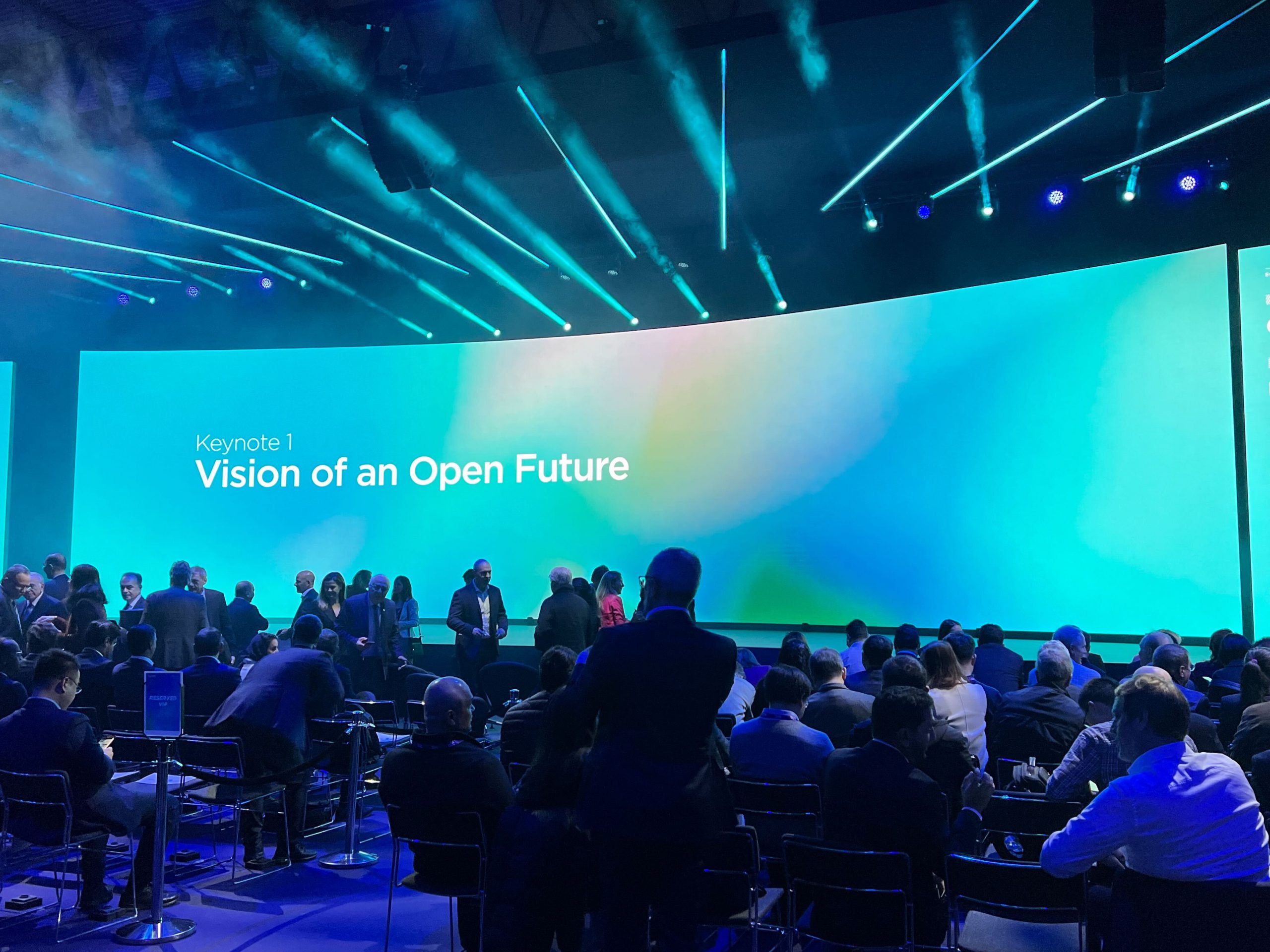*By Vinícius Boemeke
The first sessions of Mobile World Congress 2023 already reveal the humanization of technology. Discussions that were previously based on hardware, infrastructure and protocols now begin to look at the impact of technology on our lives, in the field of entertainment, health, finance, etc.
With that, the term collaboration was brought up by several representatives, who reinforced the need not only for operators, large companies and developers to interact more, but also for this approximation to occur between the telcos.
Of course, the basis of this focus on people is supported by technology, but now it comes as an enabler of new possibilities.
The term Earth Computing makes this tangible in a broad and, from my point of view, very appropriate way when presenting several correlations with “Earth”. Human relations are the Earth. Sustainability is part of the Earth.
And with that, quite naturally, discussion arose about the need to start “shutting down” past technologies such as 2G and 3G.
This demand does not come only from the increase in capacity that the new generations provide along with the projection of a 24-fold increase in data traffic by 2032. But from how new technologies are more efficient in terms of energy consumption. As an example, the fact that in the last five years we have had a 10-fold increase in traffic, but energy consumption has remained stable over the same period, data shared by the CEO of Orange, Christel Heydemann.
But as we are talking about “Earth Computing” we need to look at it from a global perspective and part of this mission to reach this new era is to democratize the mobile internet. According to Mats Granryd, Director General at GSMA, there is a gap of 3.6 billion people who still do not use mobile internet in the world. To make this transformation possible — for us consumers/users/citizens — the prospect is that telecom companies will make investments of around US$ 1.3 trillion by 2030.
This new value proposition is very positive because we start to look at the relationships that are built behind the technologies. I remember that, last year, at Gartner, some analysts were already mentioning the use of the metaverse and blockchain, and this issue of looking at computing on Earth, what benefits it provides us, puts us in a situation of looking at the problem, and technology is the consequence of that solution.
On the other hand, I understand that this debate is fundamental, although we still have a long way to go. Today, this discussion involves a lot of the big players and operators, who seek this transformation to achieve this change in technology to deliver value, an environment that moves from centralized to open, with APIs so that developers can personalize customer experience with the solutions. It is the first step.
Thinking about the environment, I see that sustainability has spontaneously gained strength. Technology itself is being much more efficient in demonstrating the feasibility of a significant increase in traffic against energy consumption that remains stable. Although there is a propensity for this traffic to escalate, there is also a tendency to reduce and optimize energy consumption, which is a benefit for the planet.
However, I think it is a little contradictory when we talk about wanting to connect more and more of the population — one of the possibilities of this connection being the shutdown of 2G and 3G networks —, when a good part of it still doesn’t have access. Increasing coverage for a new technology, such as 5G and 6G, without yet expanding access to all or providing conditions for it, could become a contradiction among the major operators.
In Europe, there is already a plan to shut down 2G and 3G networks in some countries, but I believe that globally it will still take some time to balance this dichotomy that involves this energy benefit.
And to wrap up, getting back to the importance of personal relationships, the resumption of the post-pandemic event is evident. The hallways were once again crowded, the fair once again occupied one of the main pavilions of the event and people once again interacted more closely, creating interpersonal connections.
This is just the beginning, I will be back soon with more news from Mobile World Congress.
*Vinícius Boemeke is the CEO at Pulsus



